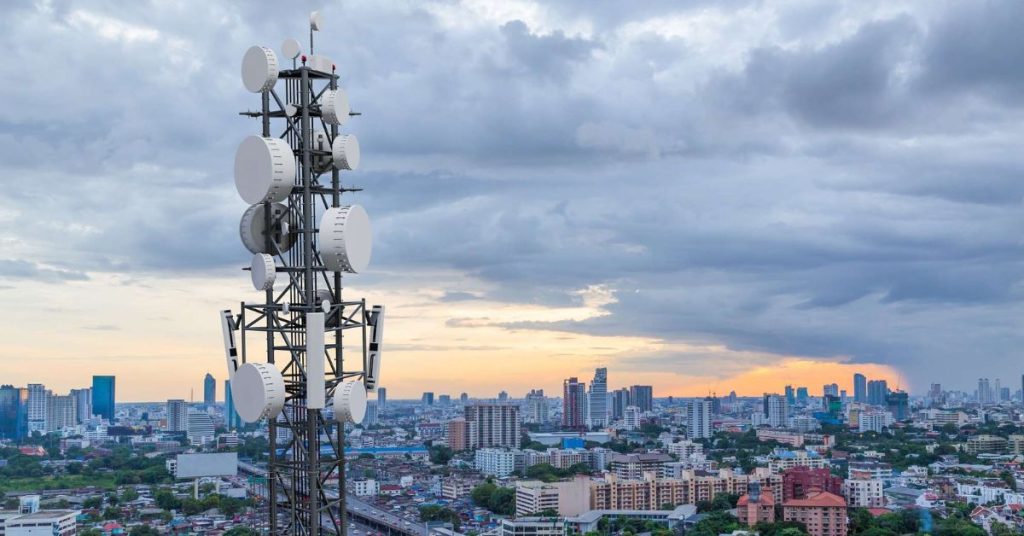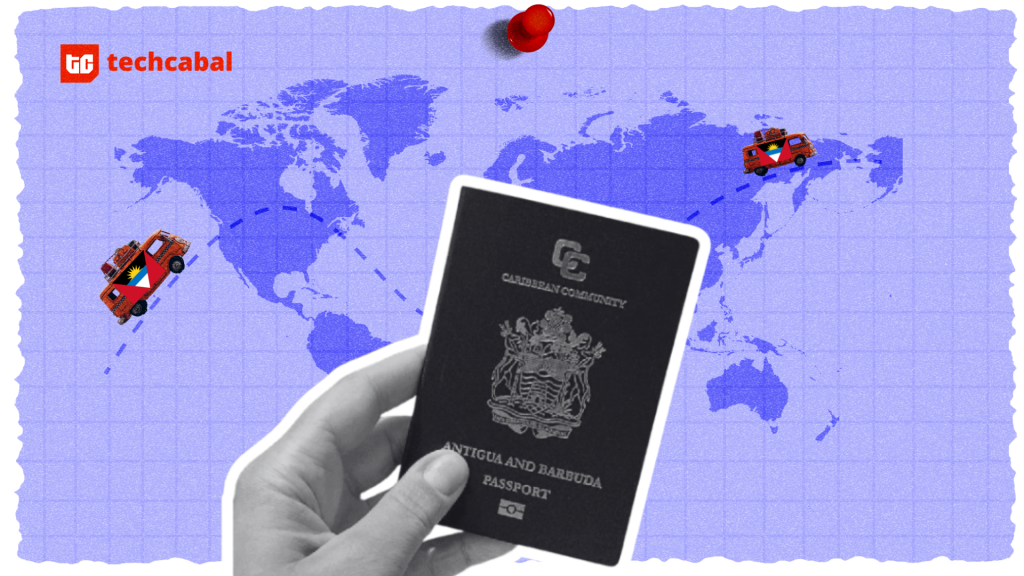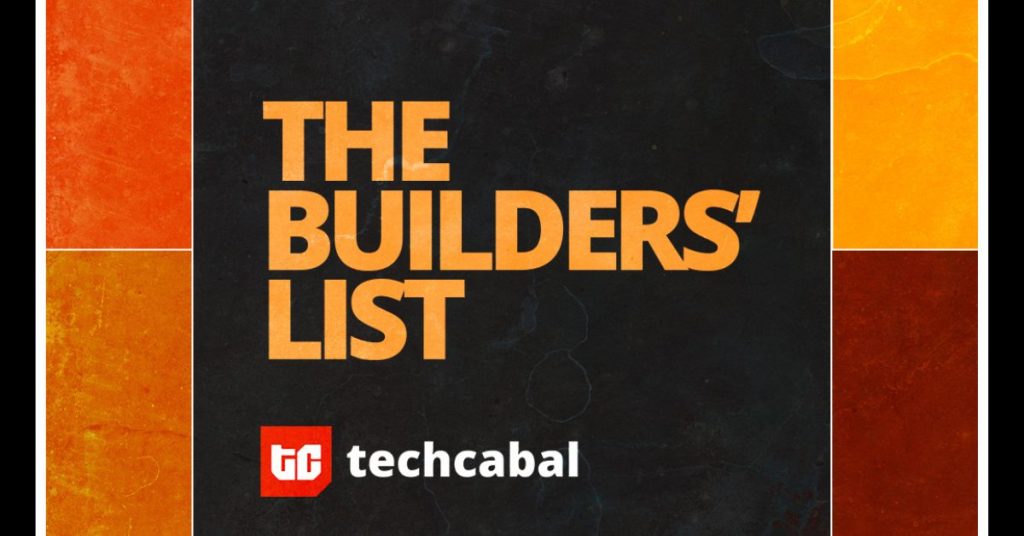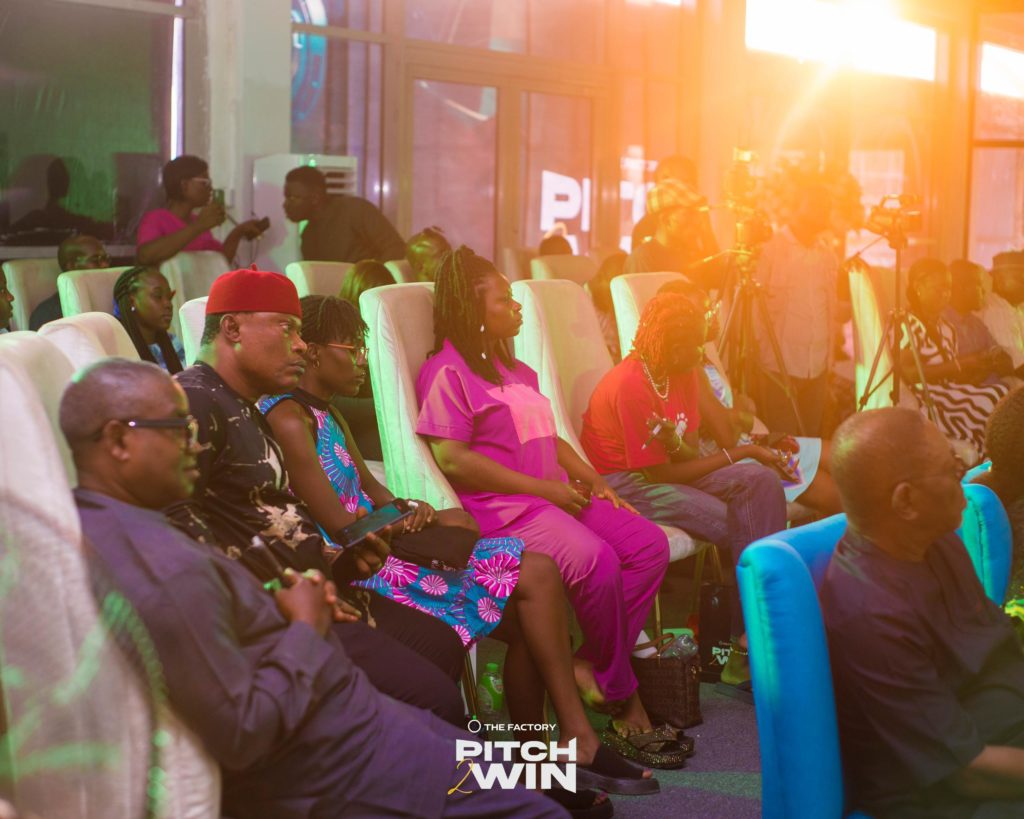
In the lush tranquility of Calabar, far removed from the frenetic pace of Lagos, a quiet transformation is shaping how technology is perceived in Africa.
Known more for its serene ambiance and historical sites than its tech prowess, Calabar—the capital of Cross River State in South-South Nigeria—is stepping onto the global stage as a burgeoning hub for innovation. And at the heart of this shift is The Factory, a revitalized tech hub nestled in Tinapa Business Resort, an iconic yet troubled relic of Nigeria’s ambitious past.
Pitch2Win: A Launchpad for Ideas
The Factory’s inaugural pitch event marked both a celebration and a call to action. Drawing over 200 applications from across Nigeria, the Pitch2Win competition aimed to uncover the country’s most promising startups, from idea to pre-seed stages. Entrepreneurs were challenged to craft compelling stories and vie for a share of the 10-million-naira prize pool.
Beyond the competition, the week-long event offered workshops on product development, branding, and investor readiness, featuring insights from some of Africa’s most respected tech leaders.
After a high-stakes finale judged by Nelson Elemi, CEO of The Factory, Xerona Duke-Philips, partner at Duke & Bobmanuel LLP, Oluwatofunmi Idowu, Operations Analyst at LoftyInc Capital, and Dipo Gbadebo, co-founder of Flick, three startups emerged victorious.
Hack51, an Andela-inspired pipeline for African tech talent, clinched the top prize of five million naira. Decenter AI, which empowers African businesses with artificial intelligence integration, secured three million naira as first runner-up. WearNaija, an e-commerce platform for locally made fashion, earned one million naira as the second runner-up.
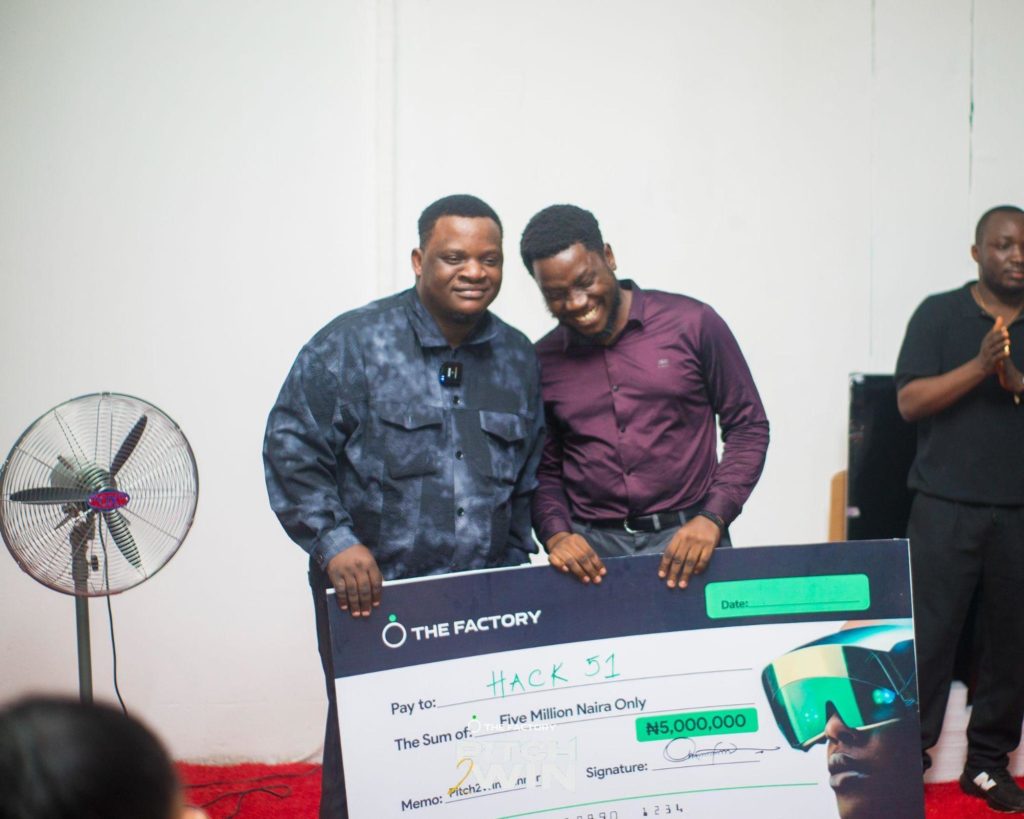
But the event wasn’t only about winners. It sparked critical discussions on Africa’s evolving tech ecosystem, where startup funding has faced steep declines. African startups raised $779.7 million in the first half of 2024—the lowest since 2020—with a notable shift towards debt deals over equity investments.
“Early-stage founders must explore equity-free funding options while they build traction,” said Oluwatofunmi Idowu. “The VC climate remains cautious, and startups need to show investors tangible proof of success.”
For Dipo Gbadebo, the solution starts with solving real-world problems. “Don’t build for yourself; build for the market. Create solutions that people will pay for,” he advised. “That’s what attracts investors—sustainable, profitable ventures.”

The importance of legal frameworks for startups was underscored by Xerona Duke-Philips. “Whether raising funds from family, friends, or formal investors, startups need proper documentation and agreements. Treat every deal with the seriousness it deserves,” she said. Legal Practitioner Simisola Eyisanmi echoed this advice, urging founders to avoid informal, conflict-prone arrangements.
Moderating the panel was Caleb Nnamani, a leading technology reporter whose thoughtful questions steered the discussion toward actionable takeaways. Nnamani tied together diverse perspectives, ensuring that founders, investors, and attendees alike left with a clearer understanding of Africa’s startup landscape.
Tinapa: A Story of Renewal
Tinapa Business Resort, once envisioned as a “Mini Dubai,” was launched in 2007 with grand ambitions. With retail spaces, entertainment centers, and a 400-room luxury hotel, it was a $450-million statement of Nigeria’s aspirations. But years of underuse and the 2020 #EndSARS carnage left the facility in disrepair, looted and abandoned.
For Nelson Elemi, Tinapa’s decline is a foundation for something new. “As Silicon Valley is to America, Tinapa can be to Africa,” he declared. “It’s about creating a sanctuary where tech startups can grow without the challenges of overcrowded cities.”
Walking through The Factory’s refurbished spaces, the signs of renewal are clear: sleek co-working spaces, reliable electricity, and modernized infrastructure. Yet, Elemi knows this is only the beginning. “We’re rebuilding Tinapa into a tech hub that provides startups with affordable workspaces, mentorship, and end-to-end support. From funding to incorporation—we’ll ensure they have all they need to succeed,” he added.
Calabar’s Promise
Lagos has long been the epicenter of Africa’s tech narrative. But its exorbitant living costs, crippling traffic, and infrastructure woes make it a challenging environment for startups. Calabar offers a reprieve—a peaceful city where entrepreneurs can innovate without distractions.
“Tinapa gives startups the chance to focus on building global solutions in an affordable, well-structured environment,” Elemi said. For many attendees, this vision resonated. One founder noted, “Calabar has the right mix of affordability and opportunity. It feels like the next big thing for tech in Africa.”
Looking Forward
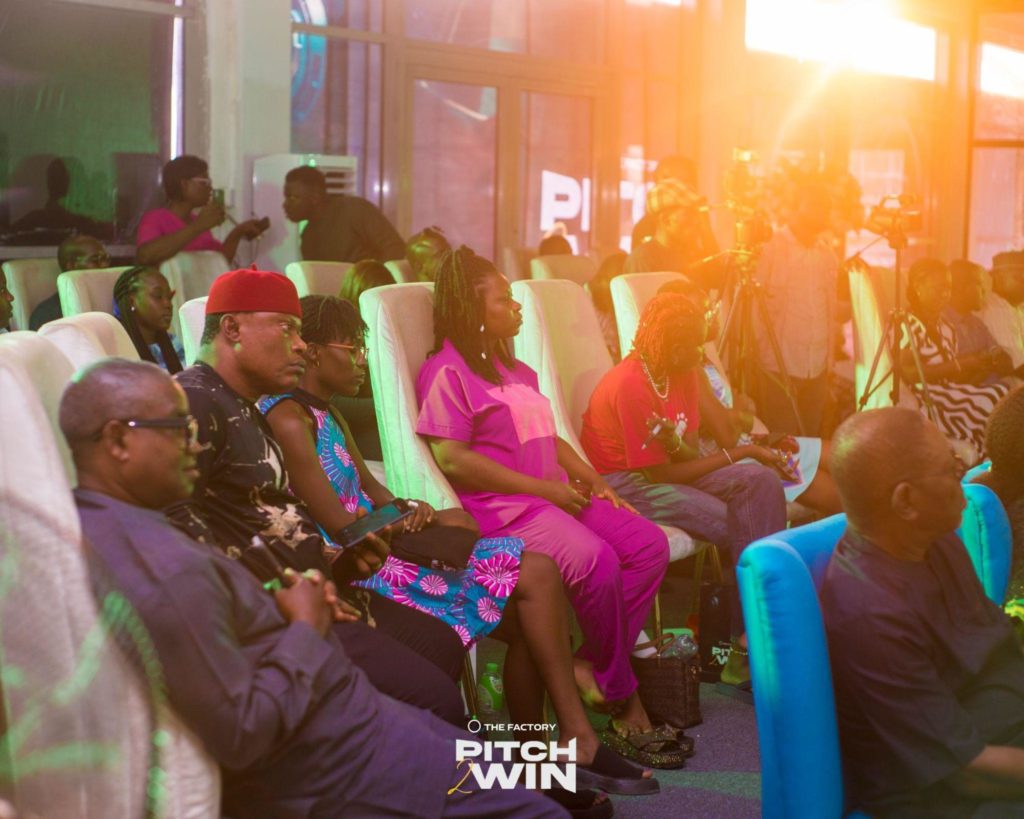
As Pitch2Win came to a close, it was clear this wasn’t just a competition. It marked the start of a movement—one that positions Calabar, through Tinapa, as a future tech powerhouse. With The Factory driving change, startups have a chance to thrive, investors can find value, and the world can witness a new chapter of innovation from Africa’s quieter corners.
For Nelson Elemi and his team, Tinapa’s revival is not just a promise—it’s a blueprint for Africa’s true tech revolution.





